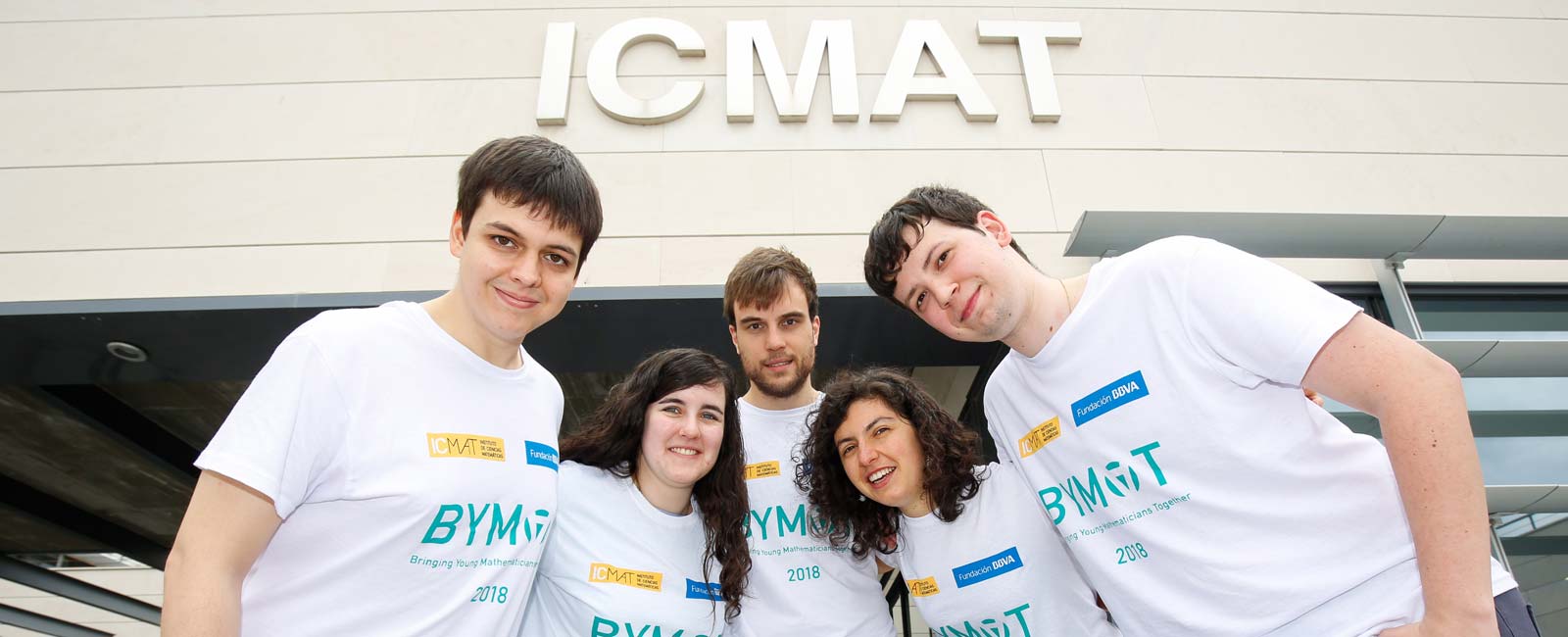
Introducing BYMAT, an innovative international network of young doctoral students in mathematics
In a society increasingly reliant on mathematics – Big Data, artificial intelligence, cryptography… – the doctoral students who are its newest practitioners have woken up to the value of the resources they possess in abundance, like their “fresh viewpoint,” as they describe it, get up and go, tech savviness and, of course, high-quality training. Convinced that these qualities can be reinforced by interaction, a group of young researchers have created Bringing Young Mathematicians Together (BYMAT), a graduate collective that is the first of its kind in the math community. Their inaugural conference, held this week in Madrid, has exceeded all expectations, with 200 PhD students attending from 60 institutions worldwide.
8 May, 2018
The event is being held in the Instituto de Ciencias Matemáticas (ICMAT) on 7-9 May, with support from the BBVA Foundation in the form of travel grants. The high attendance can be read, in the organizers’ view, as one more sign of the social ascendancy of math, whose experts are in growing demand in business as well as in academic circles.
The goal of the conference, whose participants come not only from Spain and the rest of Europe, but also India, Mexico and Brazil, is to provide a supportive atmosphere in which students can share “common concerns, like research and employment opportunities and the need to communicate better what it is that we do,” explains Patricia Contreras, a mathematician and physicist studying the phenomenon of quantum entanglement, and a member of the organizing committee.
The initiative started with Ángela Capel, who got the idea during a research stay in Paris: “I realized that the most productive part of my training was the half hour of informal chat that the research team engaged in daily, and it occurred to me to organize some forum for doctoral students to meet, learn how to communicate our work, and explore the options available after completing our thesis.”
Her colleagues David Alfaro, Patricia, Roi Naveiro and Jesús Ocáriz, all of them – like Ángela – doctoral students at ICMAT, came immediately on board: “Organizing this conference has been an unexpected but extremely gratifying task,” remarks Ocáriz, “and we are really happy to have gotten a response from so many people in so many places. It’s just amazing.”
Knowledge “as the powerhouse of society”
Interacting with people with similar concerns from very different areas is, they agree, a huge encouragement, especially at a time when their future is still undecided. In effect, like all the students attending the event, they are at a crucial stage in their nascent careers: preparing the PhD thesis that will mark their first confrontation with problems no one has yet solved.
This is a challenge, says Capel, that equips the student with “vision, and the perseverance to undertake something that is highly demanding, and may not turn out well at first”; qualities at a premium in both academia and the world of business. Ocáriz concurs that the thesis is a “roller coaster ride” with more than its fair share of disappointments: “You can experience some really tough moments, colliding time and again with the same brick wall.”
Capel’s thesis deals with the materials required for a future quantum computer. Naveiro is working on artificial intelligence, specifically “how to achieve machines that can tell when someone is trying to deceive them,” while Ocáriz’s research is in the domain of functions. Alfaya, finally, specializes in algebraic geometry, where he studies moduli spaces.
None are clear about what awaits them after their thesis, but they are sure of one thing: “We have a fresh viewpoint, and abundant motivation, we are savvier with technology … We want to help install knowledge as the powerhouse of society,” concludes Naveiro.
